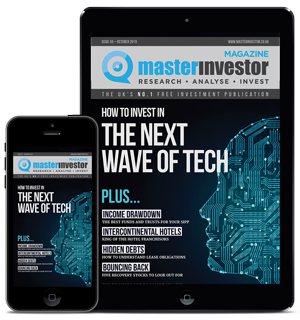Cautious approach from the Personal Assets Trust

| Master Investor Magazine
|
Investors in the Personal Assets Trust have enjoyed another steady half-year with the portfolio well-placed to withstand whatever the markets can throw at it.
The £1.1bn Personal Assets Trust (LON:PNL) is an independent investment trust that is run expressly for private investors. Its objective is to protect and increase (in that order) the value of shareholders’ funds per share over the long-term.
During the six months to the end of October, the period covered by the interim accounts, the trust delivered a steady 2.5% increase in its NAV. Since manager Sebastian Lyon took over in March 2009, the NAV total return has been 8.4% per annum versus 12% per annum for the FTSE All-Share, which is reasonable given his ‘safety first’ approach and low exposure to the equity market.
Lyon’s investment report in the accounts gives you a good idea of how he sees things: “After a decade of low interest rates, investors must weave a treacherous path through high valuations, low growth and heightened political risk. We continue to tread carefully… Our preference remains for sustainable and robust business franchises which are moderately valued but offer growth in a low growth world.”
Defensively positioned
The fund is defensively positioned with a third of the assets invested in a concentrated portfolio of 18 UK and US blue chip stocks that are described by Lyon as “financially productive companies that pay us to invest in them.” These typically have pricing power and operate in defensive industries, with the largest holdings including the likes of: Microsoft, Nestle, Unilever, Coca-Cola British American Tobacco and Phillip Morris.
Portfolio turnover is extremely low with just two new holdings added during the six month period covered by the accounts. The first of these was Medtronic, a medical device company whose shares have not taken part in the re-rating enjoyed by high quality businesses in the past five years. This was partly because of over-optimistic management guidance, but Lyon believes that the guidance is now realistic and that the company is in good shape with a strong pipeline of products.
The second addition was Alphabet, the parent company of Google, which was bought in June when the shares fell to just over 10 times cash flow. Lyon says that the business has the capacity to grow at attractive rates throughout the business cycle and has over $100bn in cash on the balance sheet, much of which could be used for share buybacks.
| Master Investor Magazine
|
Hedged back to sterling
A further third of the portfolio is held in US Treasury Inflation-Protected Securities (TIPS), with most of the rest divided between UK T-bills, US Treasuries, gold and cash. Interestingly, the majority of the US exposure is hedged back to sterling, which should protect the fund in the event of a resurgence in the pound if the election result is well received.
Lyon is very much a ‘steady hand on the tiller’ sort of manager who doesn’t get drawn into taking short-term punts. Writing in the accounts he said: “As regards specific political events such as Brexit, the UK general election or the US 2020 presidential election, short-term tactical decision-making is likely to fail. We try to take account of and protect against, substantive risks to the portfolio… However, we spend a much greater part of our time identifying and analysing businesses which should perform well regardless of the wider political and macroeconomic backdrop.”
The manager’s cautious approach and the emphasis on capital protection makes the Personal Assets Trust a suitable core portfolio holding for many private investors. This is further supported by the fund’s “zero-discount” policy that means that the share price sticks closely to the underlying NAV.
 Never miss an issue of Master Investor Magazine –
Never miss an issue of Master Investor Magazine –
Comments (0)